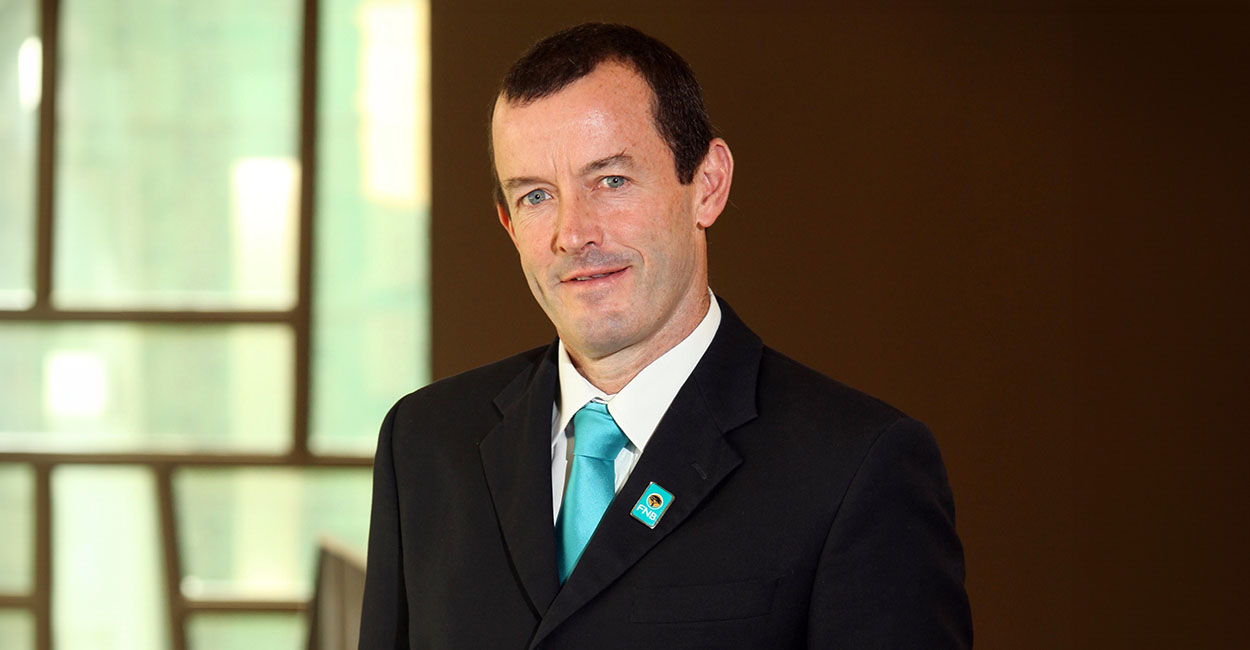MAIN IMAGE: Adrian Goslett, CEO of RE/MAX of Southern Africa, Rhys Dyer, CEO of ooba Home Loans, Dr Andrew Golding, chief executive of the Pam Golding Property group, Herschel Jawitz, CEO of Jawitz Property, Samuel Seeff, chairman of Seeff Property Group
Editor
Last Thursday, the South African Reserve Bank (SARB) announced that the repo and prime lending rates will remain unchanged at 8.25% and 11.75% respectively.
Adrian Goslett, CEO of RE/MAX of Southern Africa, predicts that in terms of our economy, things are hopefully as bad as they will get for now. “All indicators seem to be pointing towards greater stability. If this is the case, we should hopefully be heading into a period where inflation and interest rates will remain steady, which should also lead to a slight drop in interest rates early next year.
Overall, Goslett remains cautiously optimistic about the future, “While it is always a good idea to have a backup plan in case things take an unexpected turn for the worse, I think it is relatively safe to expect that we have likely seen the last of the interest rate hikes for a while now and that the situation can and will only improve from here”.
Good news for first-time buyers
Rhys Dyer, CEO of ooba Home Loans, acknowledges that the SARB’s decision to hold the interest rate in July positively impacted ooba Home Loan’s August application intake. “Homebuyers – particularly first-time homebuyers – are interest rate sensitive. Over the last two years, the quick succession of interest rate hikes affected our home loan application volumes.
However, thanks to the reprieve in these hikes in recent months, we have seen an uptick in applications as evidenced in our August data.” Application volumes recorded in August 2023 grew by almost 8% on the average monthly intake of applications processed by ooba Home Loans in Quarter 2 ‘23.
Dr Andrew Golding, chief executive of the Pam Golding Property group, concurs, “An interestingstatistic noted in our latest Pam Golding Residential Property Index is the fact that the average age of bond applicants rose to a record high of 40 years in August 2023, which may be partly underpinned by a growing demand for investment or buy-to-let properties, which rose to 10.4% of total bond applications received by ooba last month”.
The September decision to maintain the repo rate will likely further boost these application volumes.
Herschel Jawitz, CEO of Jawitz Property, shares that buyer activity has increased across all price levels over the last two months, where we typically see some fall-off in the winter months. Buyers may sense that the next step on rates, even if only well into 2024, is down, and now is the time to buy.
No quick reprieve for sellers this year
Golding says that bank lending remains favourable, with rate concessions on home loans averaging half a per cent below prime. In most parts of the country, it will be a while before sellers start to see any real price growth in the market. In regions like Gauteng, as long as the supply of property exceeds demand at current levels, prices will remain soft. Even with CPI at 4.8%, house price growth is not expected to reach these levels in 2023, meaning that house prices will likely decline in real terms.
“With a recent Reuters poll revealing that 29 or the 30 economists surveyed predicted no change to interest rates this week, the poll also disclosed that the same economists are forecasting 75 basis points of cuts during next year (2024), which would take the prime rate back to 11% by year-end”.
Samuel Seeff, chairman of Seeff Property Group, advises sellers that they will need to continue pricing according to current market conditions. With fewer buyers and more stock, buyers are setting the sales pace. Properties are taking much longer to sell, and serious sellers still holding out may risk losing out.
What’s happening with house price growth nationally
Golding points out, “According to the Pam Golding Residential Property Index, the rebound in national house price inflation remains intact, rising from a cyclical low of 3.6% in January 2023 to 4.0% last month (August). House price growth in Gauteng of +2.9% is gathering momentum, lifting the national average to 4.0% last month, while price growth continues to slow in both the Western Cape (+4.7%) and KwaZulu-Natal (+2.0%). Notably, in the lower price band, below R1 million, house price inflation continues to gather momentum, rising to +8.2% in August.”
A look at current home loan trends
“One of the key trends emerging is co-buying,” comments Dyer. “Co-buying is when two or more people jointly purchase a property and agree to share ownership. While this happens often between couples, it’s also become popular among friends, business partners and relatives.”
This trend emerged in the US, with a recent article in the New York Times profiling two friends and co-buyers who purchased 22 homes across the country with the reasoning that ‘houses before spouses is the way to go’. “This trend takes homebuying from aspirational to attainable – especially amongst first-time homebuyers,” says Dyer. “Generally, these applicants ‘buy-to-let’ rather than ‘buy-to-live’ – a savvy investment choice.”
The buy-to-let market hit a new all-time high in June 2023 – accounting for 10.9% of all home loan applications received by ooba Home Loans. “The benefits of investing in buy-to-let properties and renting these out to stable tenants are clear. Here, landlords enjoy a steady income stream that can cover (or offset) monthly bond repayments, levies, and property maintenance costs.”
Dyer breaks down the key trends currently shaping the property market as follows:
- Banks continue to back buyers: “From January 2023 to August 2023, we achieved an average approval rate of 83% at an average interest rate of -0.43% below prime for our customers, despite the current climate. This indicates that the banks are still willing to lend and that shopping for a home loan will save you money.”
- The average purchase price is still down: The average home purchase price has eased from a record high of R1.47 million in March 2023 to R1.43 million in August 2023.
- First-time homebuyers continue to prioritise deposits: The average deposit as a percentage of the purchase price has risen steadily since April 2022 to its current level in August 2023 of 10.9%. This signifies financial savviness in this market segment.
- Pre-approvals remain on trend: “The approval rate for home loan applications linked to receiving a pre-qualification before applying remains steady at 92.3% (August 2023), while those not linked to pre-qualifications is currently at 79.1%.”








